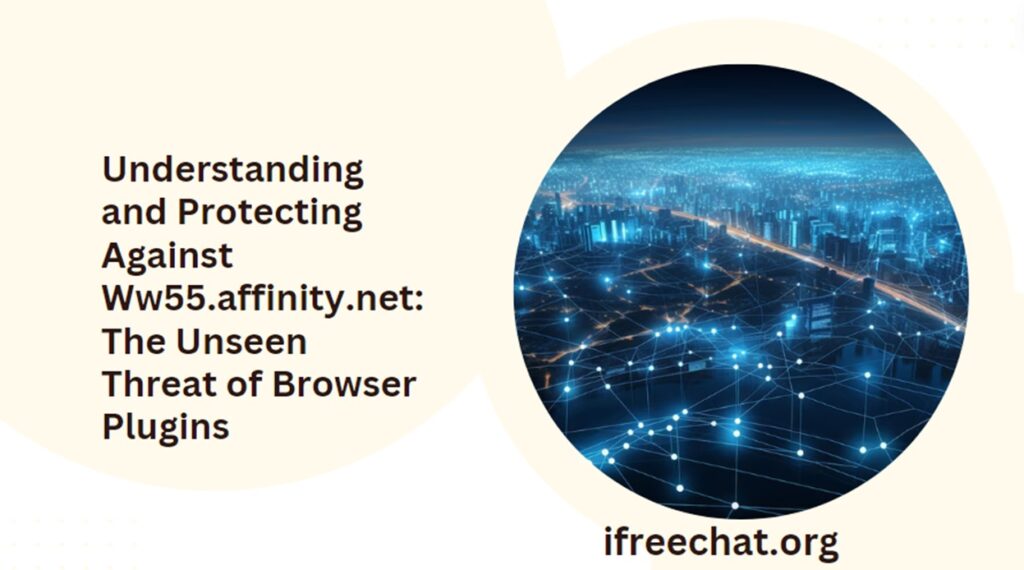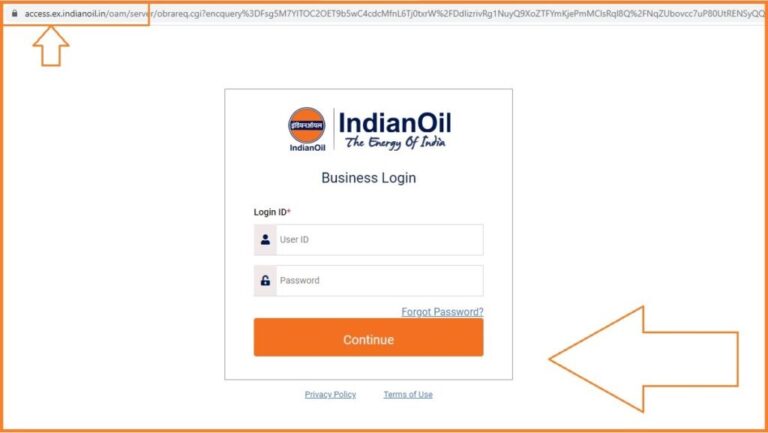
ww55.affinity.net
Introduction to Ww55.affinity.net
In the vast and interconnected world of the internet, users often encounter various threats that can compromise their privacy, security, and overall user experience. One such threat is associated with the domain ww55.affinity.net, a name linked to the cross-browser plugin known as Affinity. This plugin, though seemingly harmless at first glance, can introduce a myriad of problems for unsuspecting users, including unwanted advertisements, pop-ups, and potentially harmful software. This comprehensive article will delve into the nature of Affinity, its methods of distribution, the consequences of its installation, and, most importantly, how to protect your computer from such threats.
Table of Contents
What is Ww55.affinity.net?
Affinity is a type of cross-browser plugin designed to operate across various web browsers such as Internet Explorer, Firefox, and Chrome. The primary function of this plugin is to deliver advertisements to users as they navigate the web. While this might sound like a minor inconvenience, the manner in which Affinity operates raises several red flags. Upon installation, users are bombarded with an increased number of advertisements, pop-ups, and in-text links, all of which can severely disrupt their browsing experience. More concerning is the fact that Affinity is often distributed through various networks for the purpose of monetization, frequently bundling itself with other programs without the user’s explicit consent.
How Ww55.affinity.net Spreads
One of the most alarming aspects of Affinity is its distribution method. It typically finds its way onto users’ computers through a technique known as “bundling.” This method involves packaging Affinity with other software, usually freeware or shareware. When users download and install these seemingly harmless applications, they unwittingly agree to install Affinity as well. This is often due to users rushing through the installation process, neglecting to read the fine print or failing to notice the additional components being installed.
Additionally, Affinity can be distributed through deceptive advertisements, phishing emails, and compromised websites. Users may click on a legitimate-looking ad or download link, only to find that they have inadvertently installed Affinity. Phishing emails may prompt users to download and install software that includes Affinity as part of the package. Similarly, visiting compromised or malicious websites can result in drive-by downloads, where the user’s browser automatically downloads and installs the plugin without explicit consent.
The Impact of Ww55.affinity.net on Your Computer
Once installed, Affinity can significantly degrade the user experience. The plugin introduces various intrusive advertisements that manifest in different forms, including banner ads, pop-ups, and in-text links. These advertisements are not just an annoyance; they can also slow down the performance of your web browser and computer. Furthermore, clicking on these ads can redirect users to potentially malicious websites, increasing the risk of further infections or exposure to scams.
Beyond the visible disruptions, Affinity can also compromise user privacy. The plugin is capable of tracking browsing habits, collecting data on the websites visited, searches performed, and other online activities. This data is often used to tailor advertisements specifically to the user, a practice known as behavioral advertising. While some users might appreciate personalized ads, the collection and use of this data without explicit consent constitute a significant invasion of privacy.
Additional Programs Installed with Ww55.affinity.net
The problems associated with Affinity are compounded by the additional programs it often installs alongside it. These programs can include other well-known adware and potentially unwanted programs (PUPs) such as Yontoo, FBPhotoZoom, and Superfish. Each of these programs brings its own set of issues:
- Yontoo: A browser extension that inserts advertisements into web pages, often leading to performance issues and further adware infections.
- FBPhotoZoom: A tool designed to enhance photo viewing on Facebook, but often bundled with adware that injects ads into the browser.
- Superfish: Known for inserting advertisements into search results and web pages, and previously involved in a significant security scandal for compromising HTTPS connections.
The presence of these additional programs exacerbates the problems caused by Affinity, making it even more challenging for users to enjoy a smooth and secure browsing experience.
Affinity and Malware
While Affinity is primarily categorized as adware, its installation can pave the way for more serious infections. The additional programs installed alongside Affinity may include spyware, which monitors and records user activity, or even more dangerous forms of malware, such as trojans or ransomware. These malicious programs can steal personal information, encrypt files for ransom, or use your computer for illicit activities without your knowledge.
Recognizing the Symptoms of Ww55.affinity.net Infection
If you suspect that your computer may be infected with Affinity or a similar adware, there are several telltale signs to look out for:
- Increased Advertisements: An unusual number of advertisements appearing on web pages, including pop-ups and in-text ads.
- Browser Redirects: Being frequently redirected to unfamiliar or unwanted websites.
- Slow Performance: Noticeable slowdowns in your web browser or overall computer performance.
- New Toolbars or Extensions: Unfamiliar toolbars, extensions, or plugins appearing in your web browser.
- Unwanted Programs: Discovering new programs installed on your computer that you did not intentionally download.
Removing Ww55.affinity.net and Protecting Your Computer
If your computer is already infected with Affinity, it’s important to take immediate action to remove it and any associated programs. Here are the steps you should follow:
- Uninstall Suspicious Programs: Go to your computer’s Control Panel (Windows) or Applications folder (Mac) and uninstall any programs that you do not recognize or remember installing.
- Remove Browser Extensions: Open your web browser and navigate to the extensions or add-ons manager. Remove any extensions that are unfamiliar or suspicious, including Ww55.affinity.net.
- Run a Malware Scan: Use a reputable antivirus or anti-malware program to perform a thorough scan of your computer. This will help identify and remove any remaining threats.
- Reset Your Browser: Resetting your web browser to its default settings can help remove persistent adware and restore normal functionality.
- Update Software: Ensure that your operating system, web browser, and all installed software are up to date. Software updates often include security patches that protect against new threats.
Preventing Future Infections
Preventing future infections with adware like Ww55.affinity.net requires a combination of good browsing habits and robust security measures:
- Be Cautious with Downloads: Only download software from reputable sources and pay close attention during the installation process. Opt for custom installation and deselect any additional programs that you do not want.
- Use Security Software: Install and maintain reliable antivirus and anti-malware software. Regularly update the software to ensure it can protect against the latest threats.
- Enable Pop-up Blockers: Use browser settings or extensions to block pop-ups and potentially harmful ads.
- Educate Yourself: Stay informed about common online threats and how to recognize them. Being aware of the tactics used by malicious actors can help you avoid falling victim to their schemes.
- Regular Backups: Regularly back up your important files and data. In the event of a malware infection, having backups can prevent data loss and aid in recovery.
Conclusion
In the complex and constantly evolving world of internet security, staying vigilant and proactive is key to protecting your computer and personal information. Ww55.affinity.net and the associated domain Ww55.affinity.net serve as reminders of the myriad threats that exist online, highlighting the importance of understanding how such adware operates, recognizing the signs of infection, and taking steps to remove and prevent it. By adopting good browsing habits, using reliable security software, and staying informed about potential threats, users can enjoy a safer and more pleasant online experience. Remember, the key to staying safe online is a combination of awareness, caution, and robust security practices.
Advanced Protection Measures Against Adware and Malware
While the basic steps to remove and prevent adware like Affinity are essential, advanced protection measures can provide an additional layer of security and peace of mind. Here are some advanced strategies to consider:
- Use a Firewall: A firewall can help block unauthorized access to your computer and prevent malicious programs from communicating with external servers. Ensure your operating system’s built-in firewall is enabled, and consider using a third-party firewall for added protection.
- Install Anti-Exploit Software: Anti-exploit software is designed to protect your computer from zero-day vulnerabilities and exploits that can be used by malware to gain control of your system. This software adds an extra layer of defense against attacks that traditional antivirus programs may not detect.
- Enable Two-Factor Authentication (2FA): Where possible, enable two-factor authentication for your online accounts. This adds an extra layer of security by requiring a second form of verification, such as a code sent to your phone, in addition to your password.
- Use a Password Manager: A password manager can help you create and store strong, unique passwords for all your online accounts, reducing the risk of password-related security breaches.
- Secure Your Wi-Fi Network: Ensure your home Wi-Fi network is secure by using a strong password and enabling WPA3 encryption. Avoid using public Wi-Fi networks for sensitive activities, as they can be less secure.
- Regularly Monitor Your Accounts: Regularly check your online accounts for any unusual activity. This includes your email, social media, banking, and other accounts. Early detection of suspicious activity can help prevent more significant problems.
- Educate Your Household: If you share your computer or network with others, educate them about the risks of adware and malware. Ensure everyone understands the importance of safe browsing habits and the potential consequences of downloading untrusted software.
By implementing these advanced protection measures, you can significantly reduce the risk of infection and ensure your computer and personal information remain secure.
The Role of Browser Security Features
Modern web browsers come equipped with various security features designed to protect users from malicious websites and downloads. Understanding and utilizing these features can enhance your defense against threats like Affinity:
- Safe Browsing Mode: Browsers like Google Chrome and Mozilla Firefox have safe browsing features that warn you about potentially harmful websites. Ensure this feature is enabled to receive alerts about suspicious sites.
- Extensions and Add-ons Management: Regularly review and manage your browser extensions and add-ons. Remove any that you no longer use or that appear suspicious.
- Privacy Settings: Adjust your browser’s privacy settings to limit data collection and tracking. Consider using incognito or private browsing modes when you do not want your browsing history recorded.
- Automatic Updates: Ensure your browser is set to update automatically. Browser updates often include important security patches that protect against newly discovered vulnerabilities.
The Importance of Staying Informed
The landscape of internet security is ever-changing, with new threats emerging regularly. Staying informed about the latest security news and trends is crucial for maintaining your protection against adware and malware. Here are some ways to stay updated:
- Subscribe to Security Newsletters: Many cybersecurity organizations and websites offer newsletters that provide updates on the latest threats and security tips.
- Follow Security Blogs and Forums: Websites like Krebs on Security, Bleeping Computer, and various cybersecurity forums are valuable resources for staying informed about new threats and protection strategies.
- Attend Webinars and Conferences: Participating in cybersecurity webinars and conferences can provide insights into the latest trends and best practices in the field.
By staying informed and proactive, you can better anticipate and defend against the evolving threats that exist online.
Final Thoughts
Navigating the internet safely requires a combination of awareness, caution, and the use of robust security measures. The case of Affinity and ww55.affinity.net underscores the importance of being vigilant about the software we install and the websites we visit. By understanding the nature of adware, recognizing the signs of infection, and taking proactive steps to protect our computers, we can enjoy a more secure and seamless online experience. Remember, in the digital age, the best defense is an informed and cautious approach to all online activities.


